By Uma Purkayastha
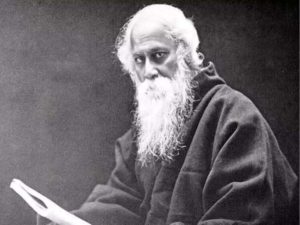 Diwali or Deepawali signifies the victory of light over darkness, truth over untruth, and good over evil. It is a festival of triumph and victory with symbolic lighting or illumination.
Diwali or Deepawali signifies the victory of light over darkness, truth over untruth, and good over evil. It is a festival of triumph and victory with symbolic lighting or illumination.
According to the Markendeya Purana, it was on a new moon day in the month of Kartika that Ramachandra returned to Ayodhya killing the demon Ravana and rescuing his wife Sita after 14 years of exile.
To celebrate the great victory of Ramchandra over Ravana, the people of Ayodhya illuminated the kingdom (Ayodhya) with earthen diyas (oil  lamps). They welcomed their ‘king’ and his party with fireworks. This took the shape of Diwali, a festival not confined to any particular religion and observed across many countries.
lamps). They welcomed their ‘king’ and his party with fireworks. This took the shape of Diwali, a festival not confined to any particular religion and observed across many countries.
The great poet laureate Rabindranath Tagore visited Shillong for the first time on October 11, 1919, and was lodged at the Brookside bungalow on Zigzag Road. He stayed there for almost three weeks. On October 23, the day of Diwali and a Thursday, he wrote a letter from the bungalow to his beloved Ranu on her 13th birthday with his hearty blessings along with the great significance of Diwali.
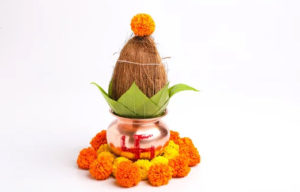 The letter read: “On the new moon day of Kartika (seventh Bengali month), I bless you on your birthday from the core of my heart, and pray that your future is brightened and glows like the sacred ceremony of light (Diwali). May your life be sacrificed to remove all the darkness and worldly evils. Our selfishness, lust, luxury and self-conceit are the darkness, the evils from which animosity, animalism and jealousy, etc., grow, thus inviting pain and grief. Our pristine sages presented us with a very valuable prayer:
The letter read: “On the new moon day of Kartika (seventh Bengali month), I bless you on your birthday from the core of my heart, and pray that your future is brightened and glows like the sacred ceremony of light (Diwali). May your life be sacrificed to remove all the darkness and worldly evils. Our selfishness, lust, luxury and self-conceit are the darkness, the evils from which animosity, animalism and jealousy, etc., grow, thus inviting pain and grief. Our pristine sages presented us with a very valuable prayer:
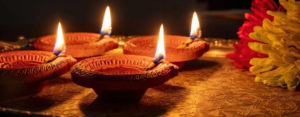 Asotoma Satgamayah,
Asotoma Satgamayah,
Tamasa ma Yotirgamayah
Mrityurma Amritangamayah!”
This translates into “Lead us from dishonesty to honesty, from darkness to light, and from mortality to immortality”.
Explaining these Sanskrit lines, the Bard wrote: “This invaluable prayer may be your prayer for the rest of your life, to protect you from all filth and narrowness.”
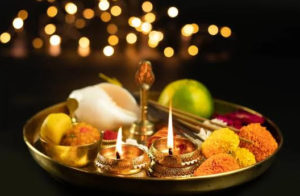 Tagore was a Brahmo follower. His father Debendranath was a key preacher of Brahmo philosophy. Tagore himself was a follower of his father’s principles, but he followed the eternal philosophy in the ‘Upanishad’ (Vedic ethics) more. He believed in the messages of the old sages of ancient India. He was a great worshipper of truth and beauty – Satyam, Shivam, Sundaram.
Tagore was a Brahmo follower. His father Debendranath was a key preacher of Brahmo philosophy. Tagore himself was a follower of his father’s principles, but he followed the eternal philosophy in the ‘Upanishad’ (Vedic ethics) more. He believed in the messages of the old sages of ancient India. He was a great worshipper of truth and beauty – Satyam, Shivam, Sundaram.
The letter was meant for Ranu, but it carries a universal message of overcoming all darkness, 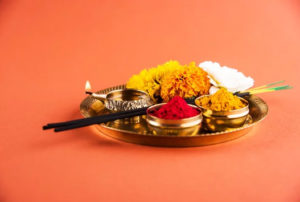 all evils, and all filth.
all evils, and all filth.
It is difficult to believe that Shillong was quite a dark urban centre in 1919. It had neither electricity nor any street light arrangement, particularly in the area of Brookside. Kerosene lamps and hurricanes or candles provided the light after dusk.
“Barring a few residential localities, the town was covered with dense forest; and at night the shrill cries of jackals from the thickets would give the place a ghostly, eerie look,” as Sunirmal Dutta 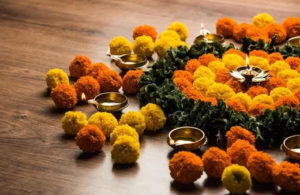 Chaudhury wrote in ‘Shillong er sei Dinguli’ in 1919.
Chaudhury wrote in ‘Shillong er sei Dinguli’ in 1919.
It was but natural for Tagore to talk about darkness on a serene new moon night without lights.
The Brookside bungalow, well-lit today, is a reminder of the contrasting situation Tagore experienced, unlike the diya-brightened Ayodhya Ramachandra returned to after defeating Ravana.



